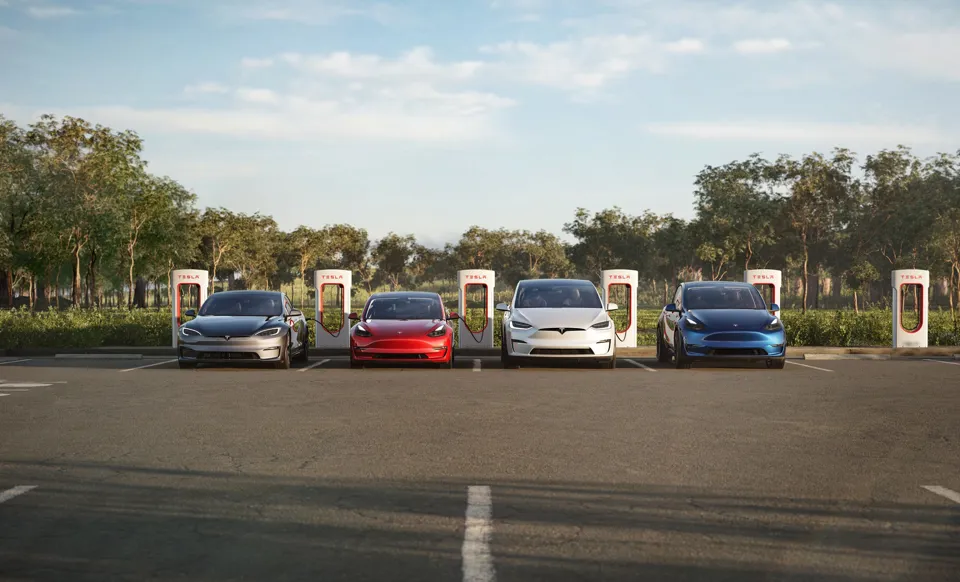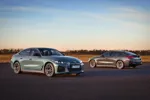Plans for an entry-level, low-cost Tesla, billed as the Model 2, have been cancelled by the manufacturer, reports suggest.
Tesla’s cheapest current model, the Model 3, has a P11D price of £39,935 in the UK. The entry-level vehicle was expected to start at about $25,000 (£19,800).
The carmaker will continue developing self-driving robotaxis on the same small-vehicle platform, sources suggest.
Two sources, according to Reuters, said they learned of Tesla's decision to scrap the Model 2 in a meeting attended by scores of employees, with one of them saying the gathering happened in late February.
“Elon’s directive is to go all in on robotaxi,” that person said.
The third source confirmed the cancellation and said new plans call for robotaxis to be produced, but in much lower volumes than had been projected for the Model 2.
Several company messages reviewed by Reuters about the decision included one on March 1, from an unnamed programme manager for the affordable car, discussing the project’s demise with engineering staff and advising them to hold off on telling suppliers “about programme cancellation”.
Tesla’s development of a low-cost car was expected to drive its growth into a mass-market carmaker.
Tesla chief Elon Musk has repeatedly promised such a vehicle to investors and consumers.
As recently as January, Musk told investors that Tesla planned to start production of the affordable model at its Texas factory in the second half of 2025.
Tesla did not respond to requests for comment, says Reuters, but after the story was published, Musk posted on his social media site X that “Reuters is lying (again)”. He did not identify any specific inaccuracies.
Shortly after, Musk posted on X the ‘Tesla Robotaxi would be unveiled on 8/8’.
Tesla faces fierce competition globally from Chinese electric vehicle (EV) makers targeting the market with low-priced electric cars.
Chinese manufacturer BYD, for example, reported record-breaking sales for 2023, selling more than three million electrified vehicles over the course of the year.
Its impressive sales performance saw it register more pure EVs than Tesla in the last quarter of 2023 for the first time.
BYD sold 526,000 battery electric vehicles (BEVs), while Tesla said it had delivered a record 484,500 BEVs in the last three months of 2023 and 1.8 million over the course of the year.
A fourth person with knowledge of Tesla’s plans expressed optimism about the decision to pivot away from the cheap-car strategy in favour of robotaxis, a segment Musk has envisioned as the future of mobility.
The source, says Reuters, cautioned that Tesla’s product plans could change again based on economic conditions.
Tesla called the affordable-car project NV91 internally and H422 externally when discussing it with suppliers, according to two of the sources and company messages reviewed by Reuters.
Messages from the unnamed Tesla programme manager to staffers referenced those code names in discussing the project’s termination. One of those messages sent March 1 said that “suppliers should halt all further activities related to H422/NV91”.
The sources said they did not know all the reasons behind the decision to kill the project.
In another March 1 message, the manager thanked engineering staffers for their efforts and urged them to document what they had learned.
“I’d like to thank everyone for all your hard work and dedication to pushing boundaries and executing the best design possible given the aggressive constraints we had to work within,” the message said.
“We would not want all our hard work to go to waste, so it’s important that we tie things off and document things properly.”
The messages showed meetings on the affordable-car project being cancelled. The two sources said some engineers have been reassigned.
Tesla’s timeline and business model for robotaxis remain unclear. Musk has publicly predicted a future of mobility in which driverless taxis could eventually become a more common mode of transport than human-driven cars.





















Login to comment
Comments
No comments have been made yet.